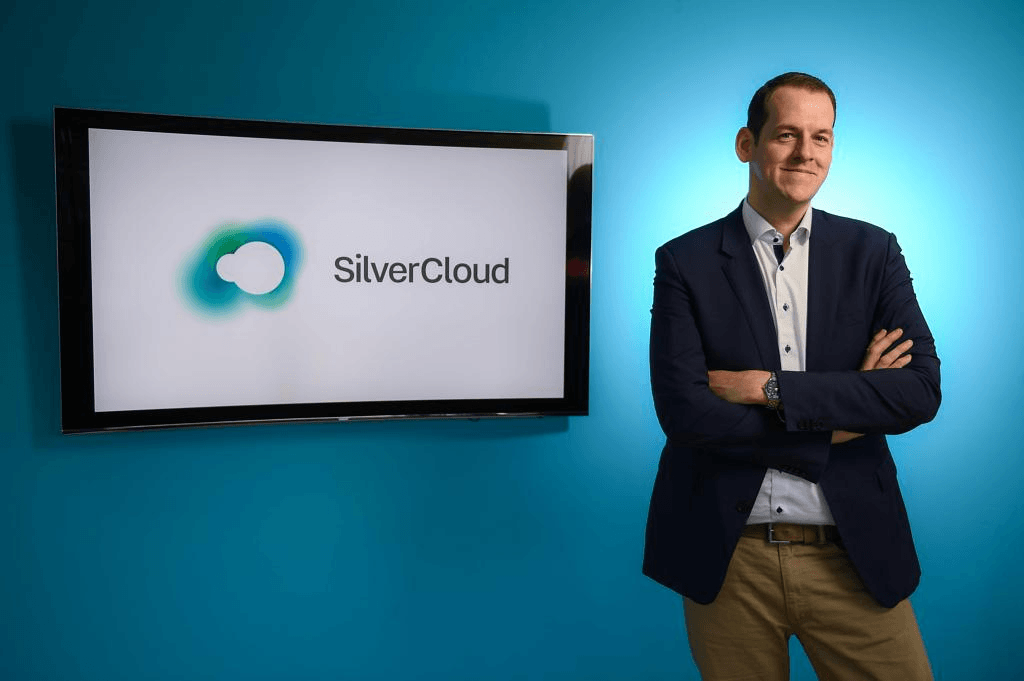Under the shadow of the Covid-19 pandemic, digital health startup SilverCloud has seen a spike in interest in its technology for digital mental health programmes.
The Dublin startup, whose backers include Facebook co-founder Eduardo Saverin, develops a digital delivery platform for mental health therapies. Its technology is deployed with health services like the NHS, private healthcare providers and insurers.
As the pandemic took hold in Europe and North America, and hospitals and health departments were focused on sourcing vital supplies like ventilators and personal protective equipment, SilverCloud’s chief executive Ken Cahill touched base with customers.
"They felt that mental health was going to slip, not the priority of need or want, but just the urgency of other areas ,” Cahill said.
"We re-purposed a number of programmes around stress, resilience and sleep,” he said. “We purpose built a new programme on living in challenging times, which is a Covid-19 specific programme on self-isolation and self-care, even touching on things like loss and bereavement.”
The company had just raised a fresh round of funding to the tune of $16 million. Digital health in various forms has drawn a lot of attention from venture capital firms in recent years. Video doctor consultations have gained particular traction with big name companies like Babylon Health and Kry.
However, video consultations were not a route that made sense for SilverCloud, according to Cahill.
“A video chat doesn't hugely help in terms of providing greater access or greater scale of access, it's still one-to-one, it's just delivered remotely,” he said.
Digital therapy
Instead SilverCloud develops around 30 different therapy programmes that are delivered by mobile, web or devices like smartwatches, such as cognitive behavioural therapy (CBT), which examines the relationship between a person’s emotions and behaviour.
"The relationship between how we think, how our thoughts and feelings and behaviours are interlinked together is a core method of therapy but a core method of how we delivery therapy online,” Cahill said.
“Essentially we're giving people access to a toolkit to help them act, think and feel better in terms of life and how they process information in terms of executive function, in terms of ‘catastrophise thinking’ or negative thinking.”
SilverCloud was founded through a spin-out of a collaboration among Trinity College Dublin, the National Digital Research Centre and the Mater Hospital in Dublin.
Therapies, which usually run between eight to ten weeks, are broken up into modules for observing a person’s progress – how they’re engaging with the programme and encouraging them to come back.
“This is our whole ethos, this is what the research was looking at, how do we improve client or patient engagement, reduce client or patient drop-out and improve clinical outcomes and do so while scaling or increasing access because that's what's very important.”
That ethos is based on four pillars that the programmes are built around called SIPS: supportive, interactive, personal and social.
Around 380,000 people are using services via SilverCloud in Europe and North America.
“Mental health doesn't focus on one age or one demographic. It's universal across the board.”
However across these age groups and demographics, there are myriad different forces at play whether they be socioeconomic environments or the existence of pre-existing conditions.
"There's a very high comorbidity between chronic illness and mental health,” Cahill said.
“Most people including myself didn't realise there were very high levels of prevalence rates of mental health among those who have a chronic illness.”
Cahill points to cases like diabetes as one example. According to a study by Diabetes UK, three in five people that are diabetic experience some kind of mental health challenge while dealing with their diabetes.
This, Cahill said, underscores the need for the tailoring of programmes to each user to achieve better results.
Funding
SilverCloud announced a $16 million series B round in early April, led by MemorialCare Innovation Fund, a Californian investment outfit that focuses on healthcare companies. Other backers in the round included LRVHealth, OSF Ventures and UnityPoint Health Ventures as well as Dublin firm Act Venture Capital.
It was fortunate timing for the company. As the economy is rocked by the Covid-19 pandemic, startups have felt the crunch with furloughs and layoffs and the prospect of a much tougher landscape over the next several months when it comes to raising VC money.
The round of funding gives SilverCloud extended runway to weather the storms ahead while trying to stick to the strategy for growth as much as possible with its team spread across offices in Dublin and Boston.
Regardless, certain sacrifices will be felt on productivity as businesses adjust to this new normal and remote working.
“We have a really passionate team that really care about what we do but we have to be very careful in terms of our understanding under this new norm that we're in,” Cahill said.
“The level of productivity that people have or can deliver is vastly reduced, the need and want of what SilverCloud is has vastly increased. We just have to be careful that we respect that and are mindful of that.”



Would you like to write the first comment?
Login to post comments